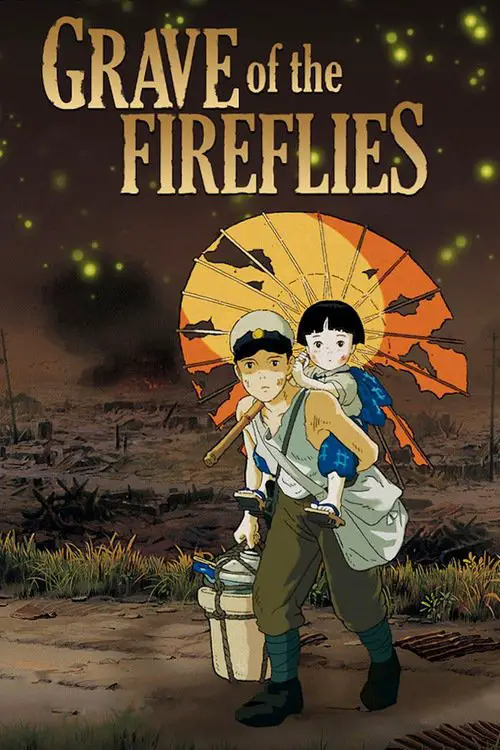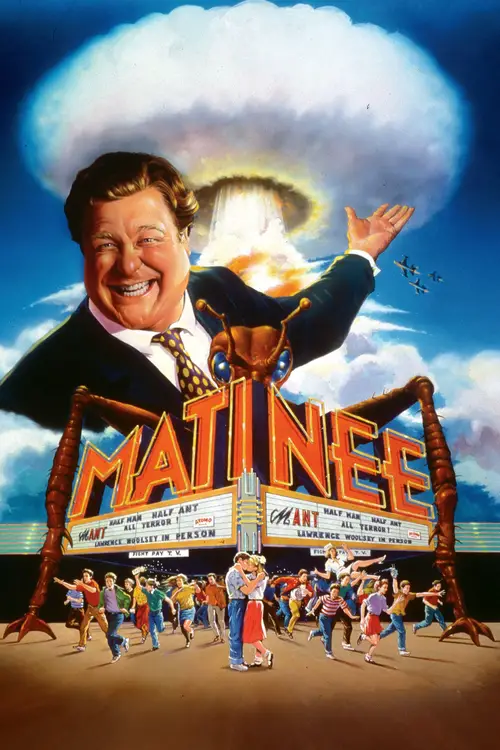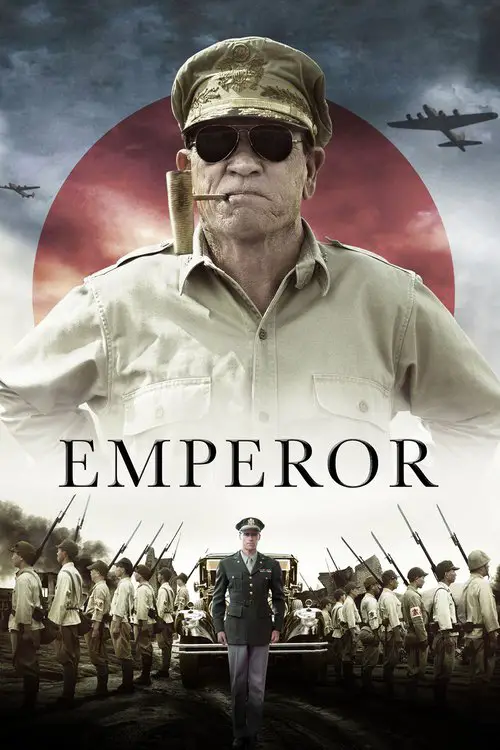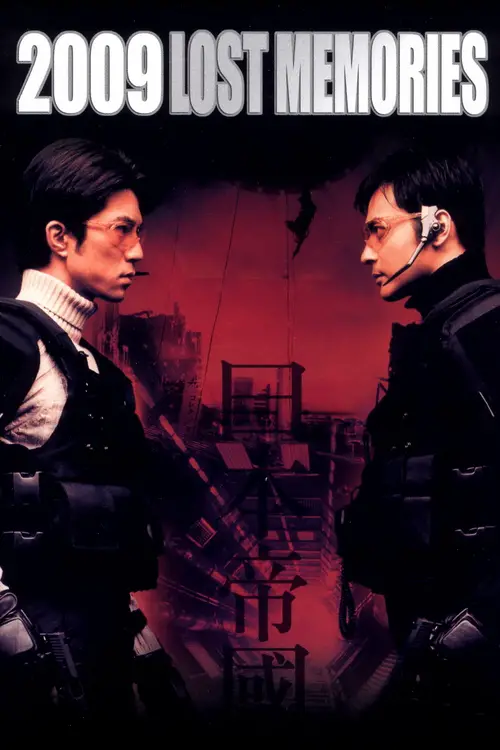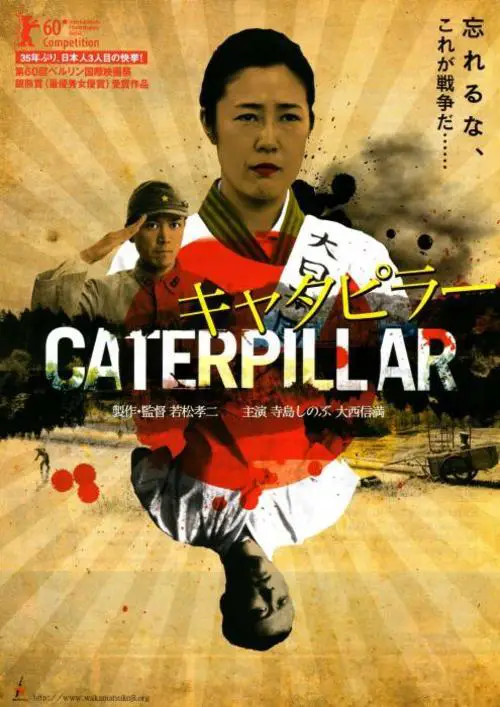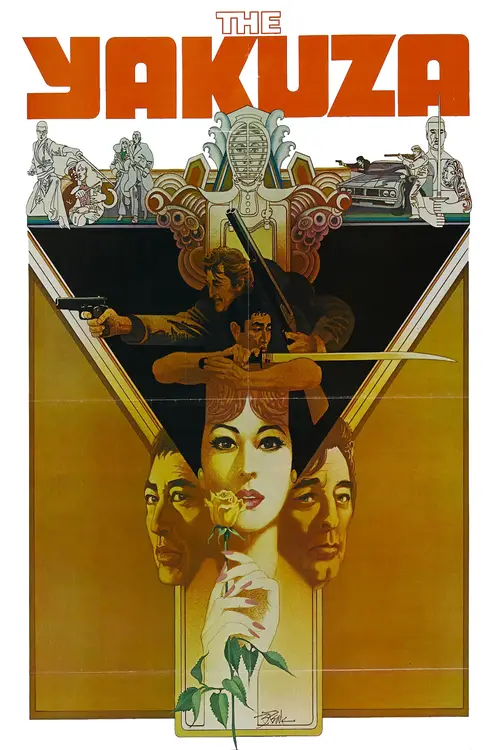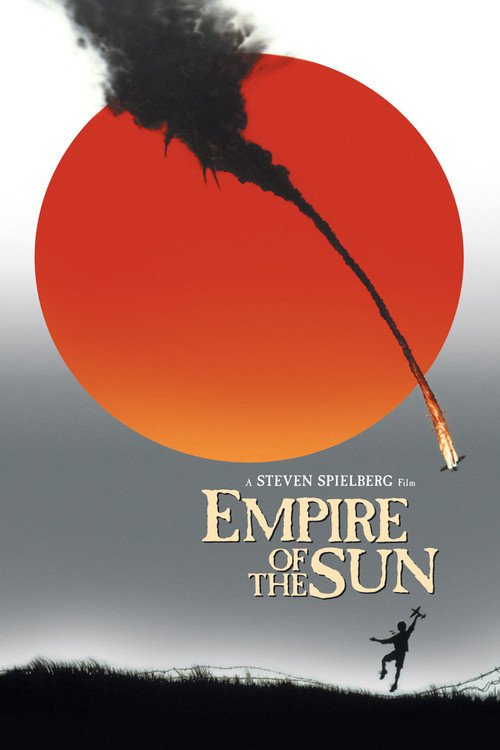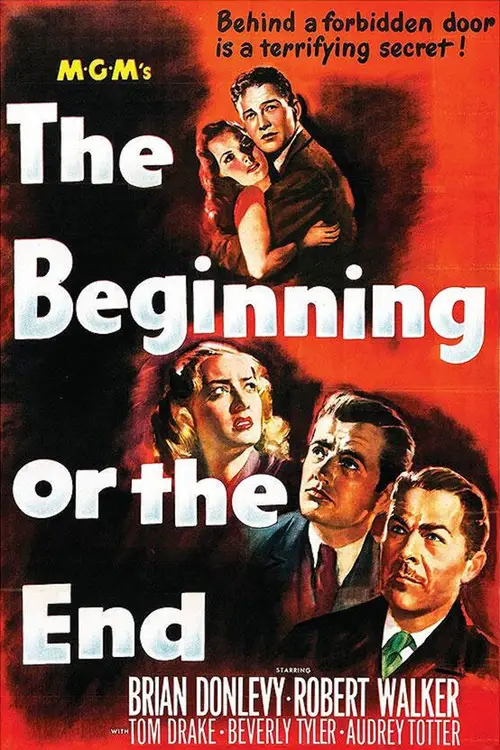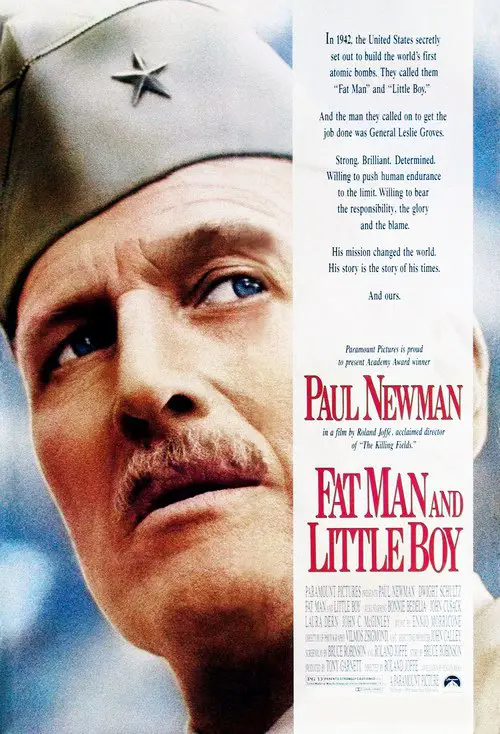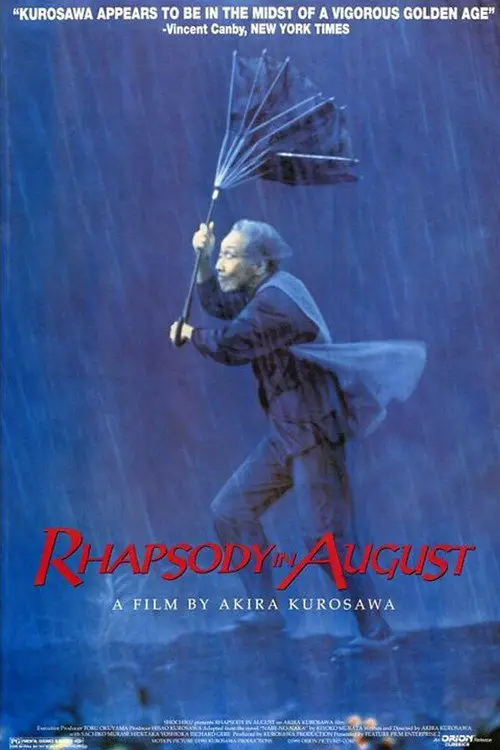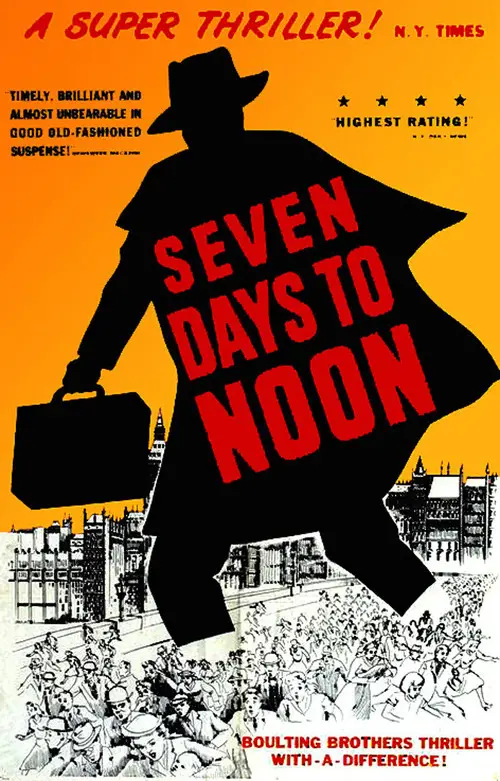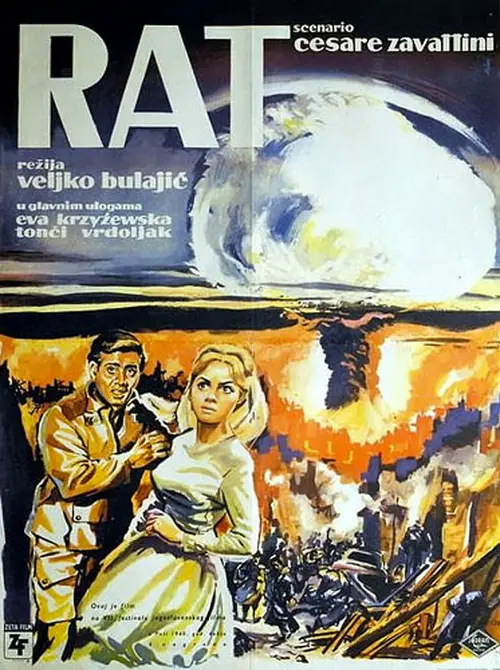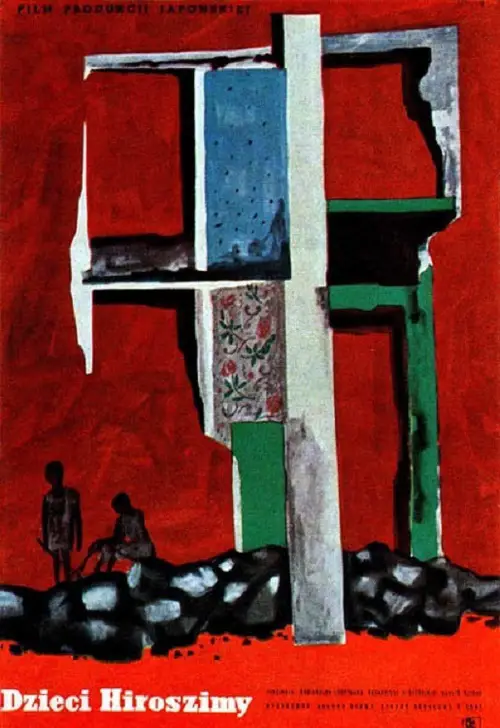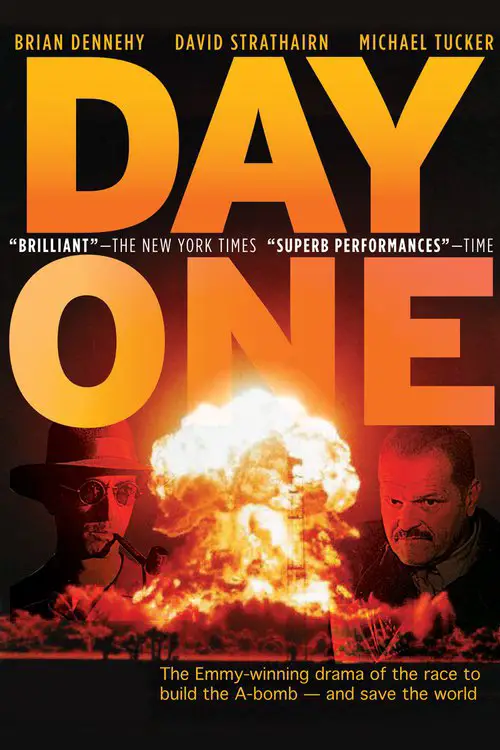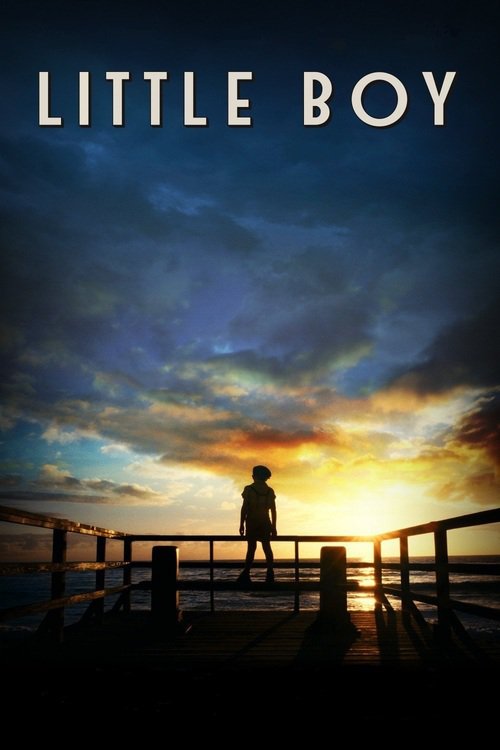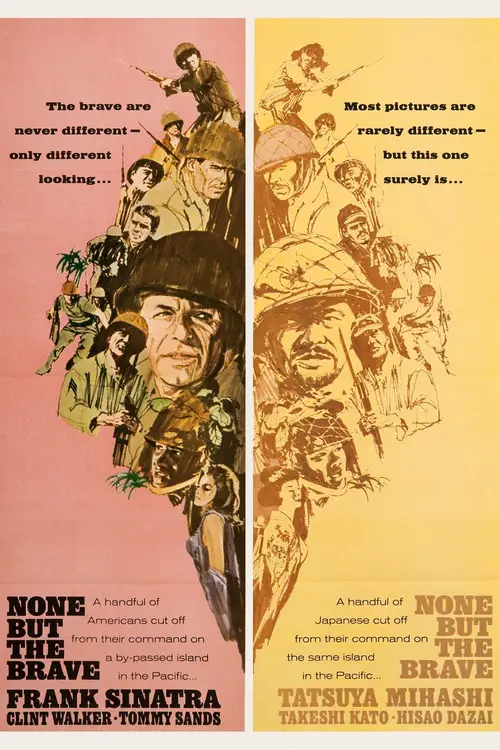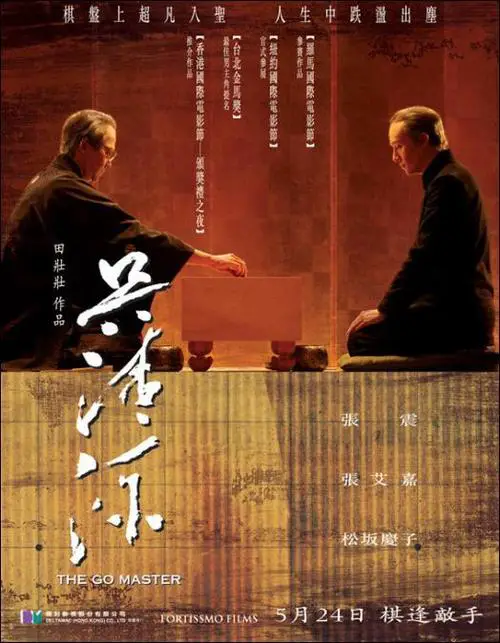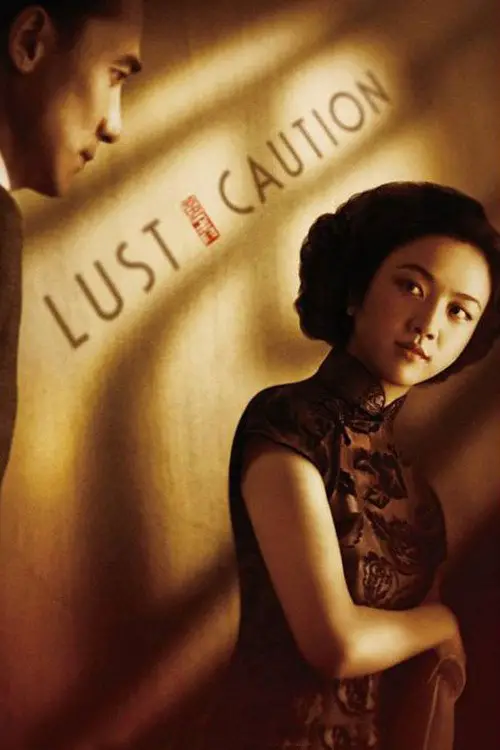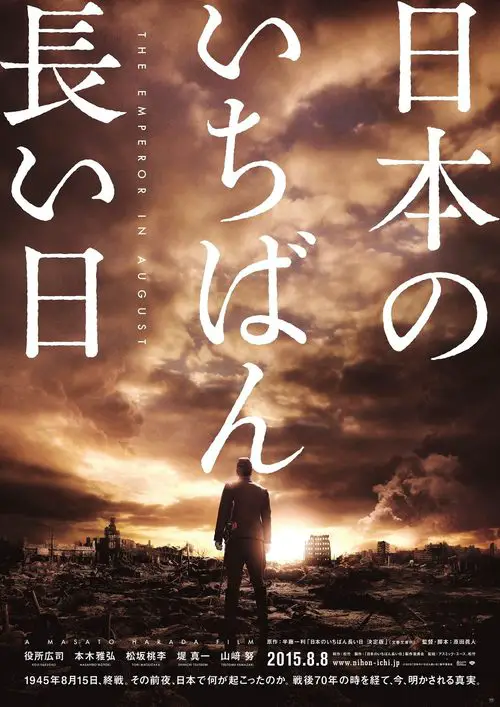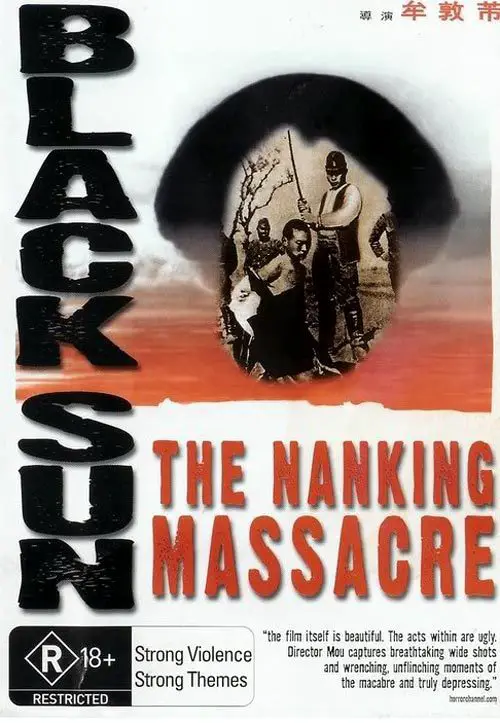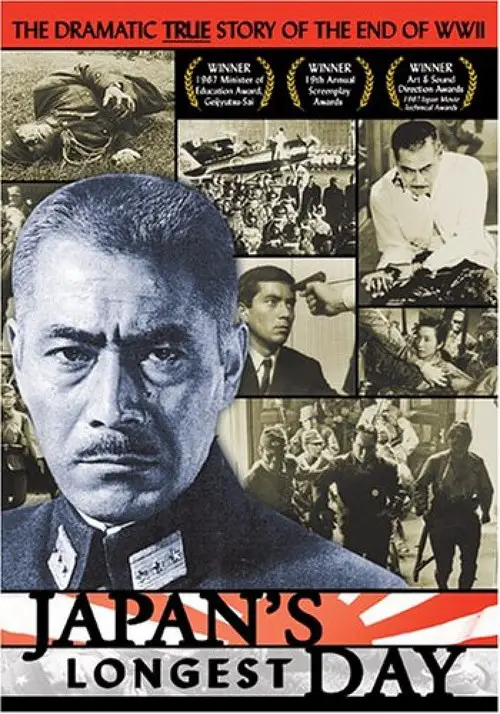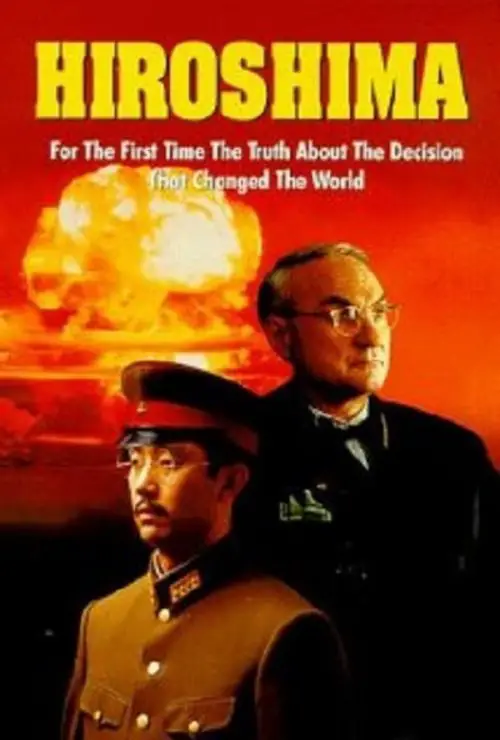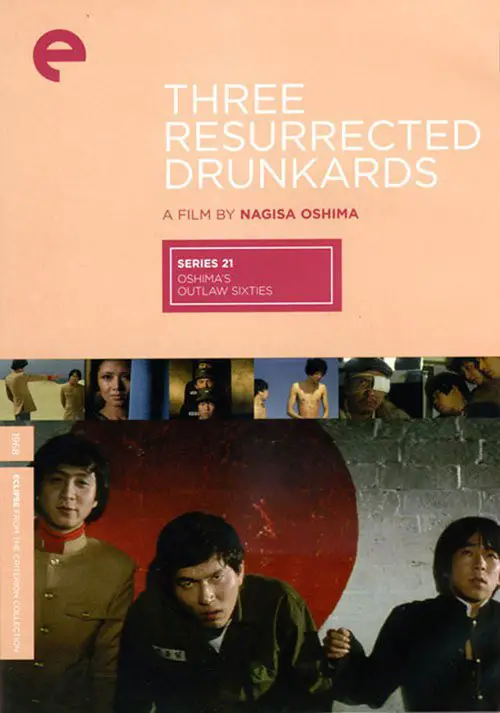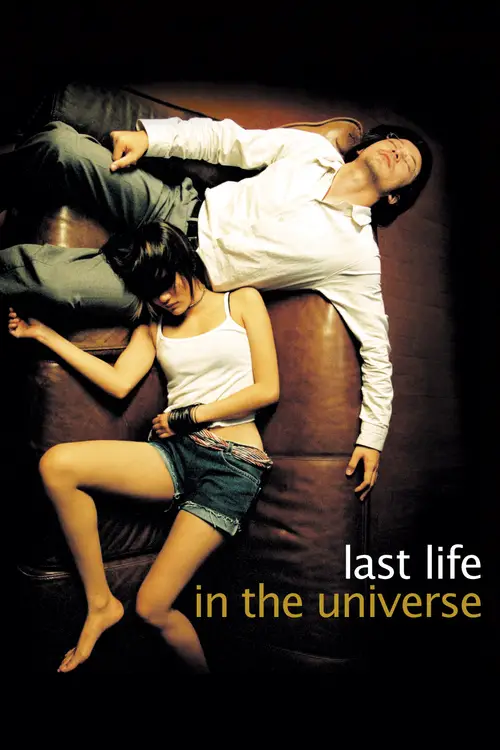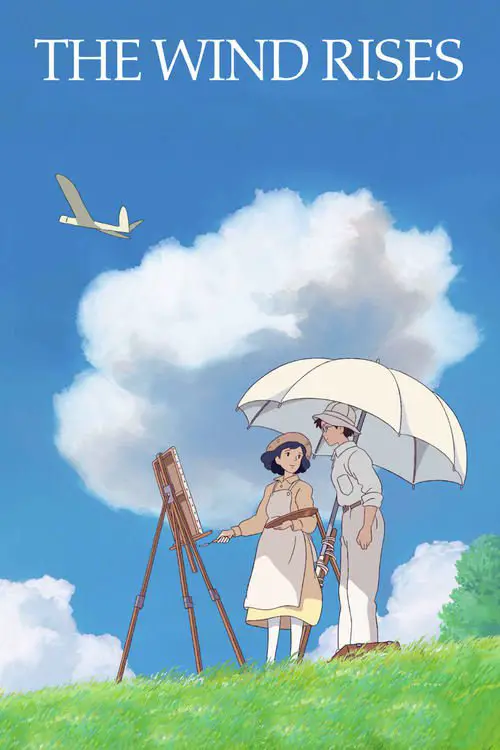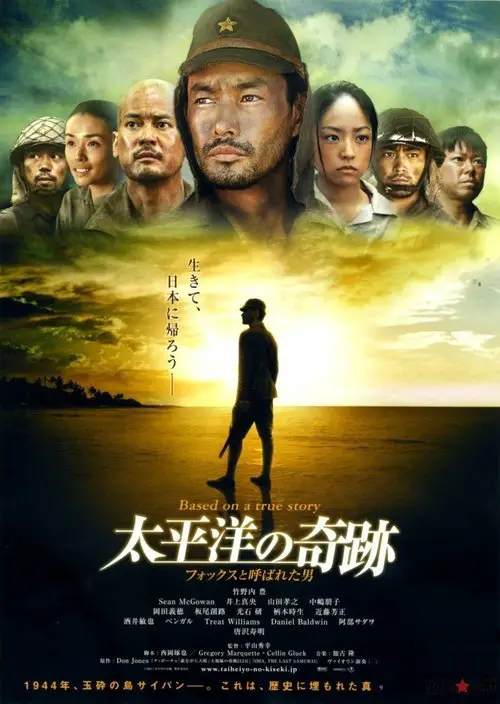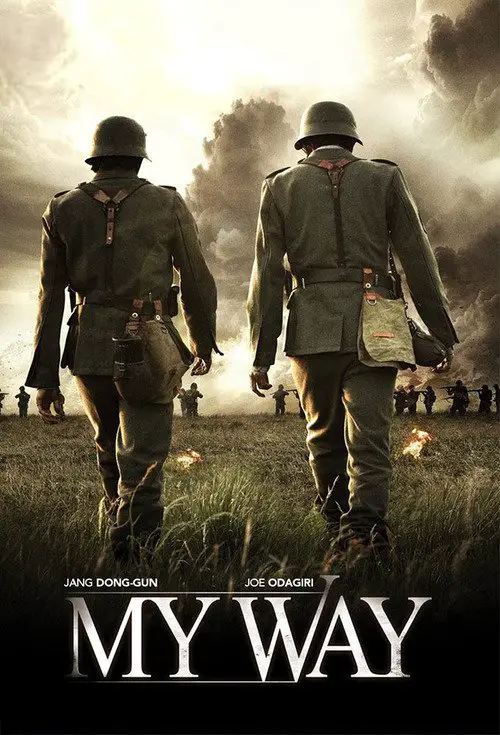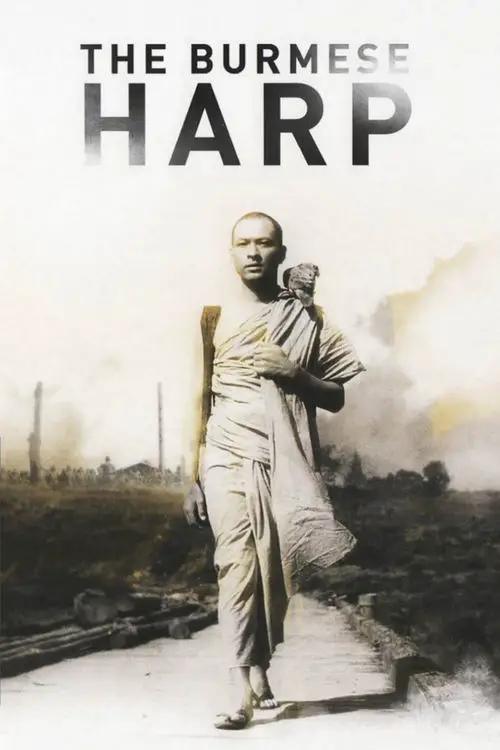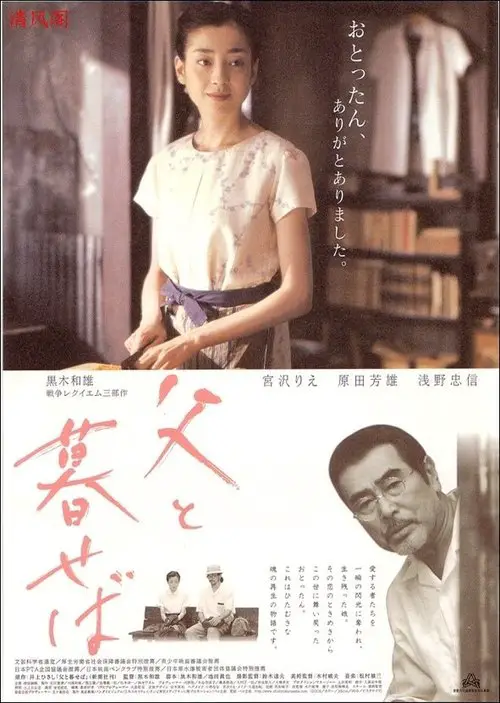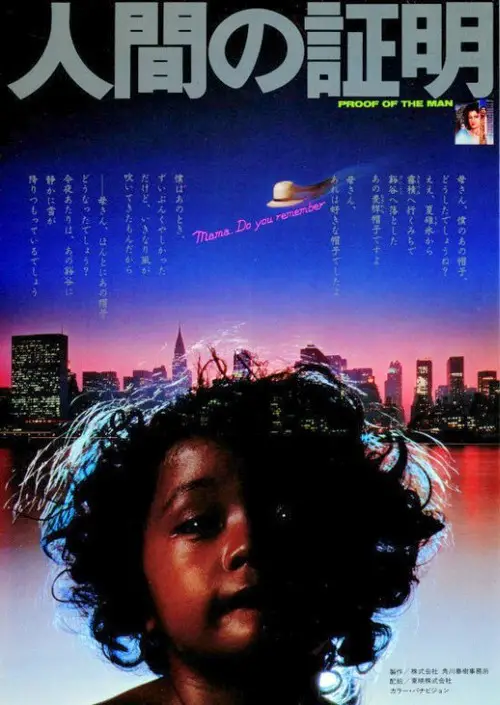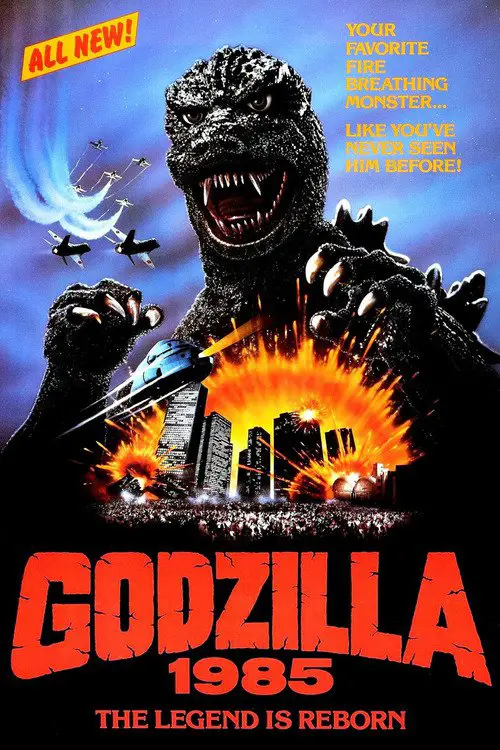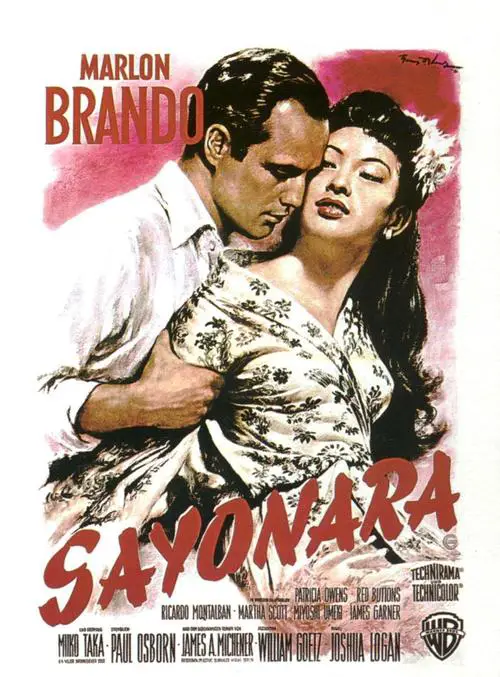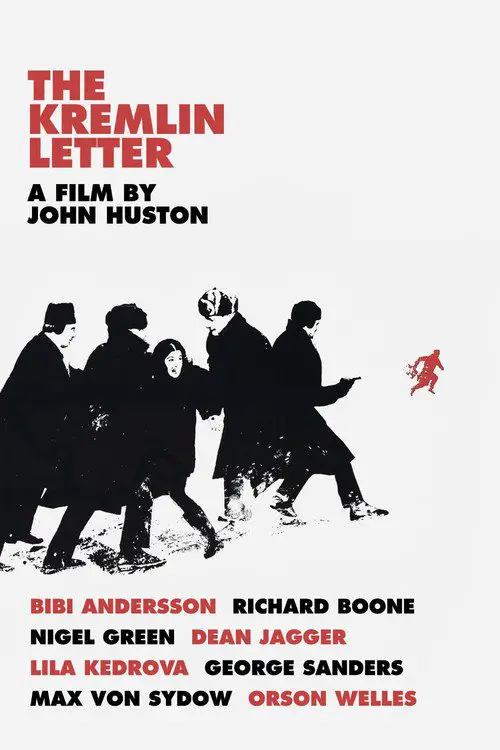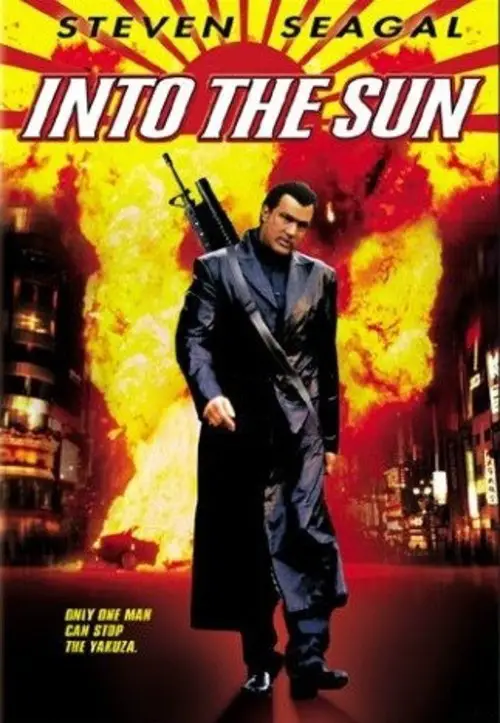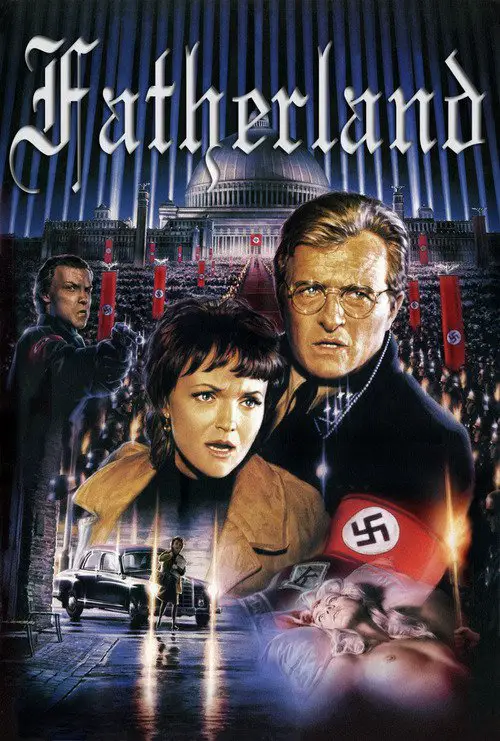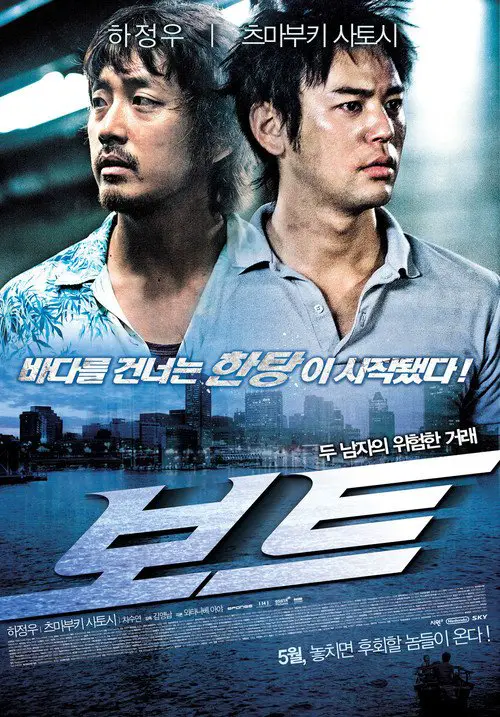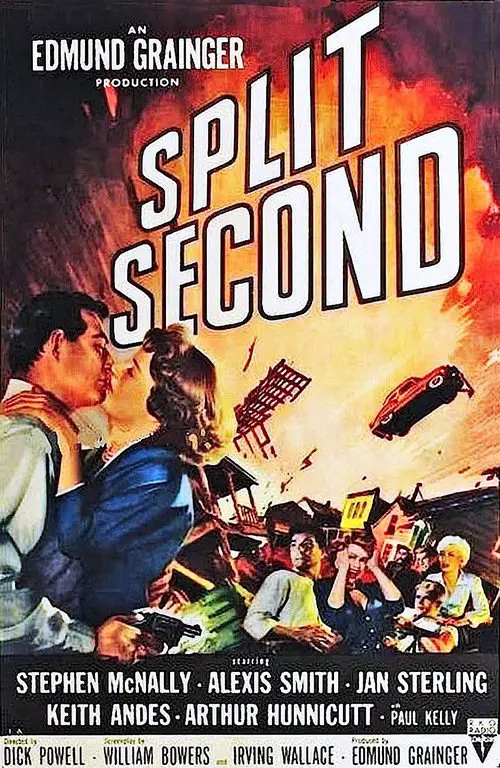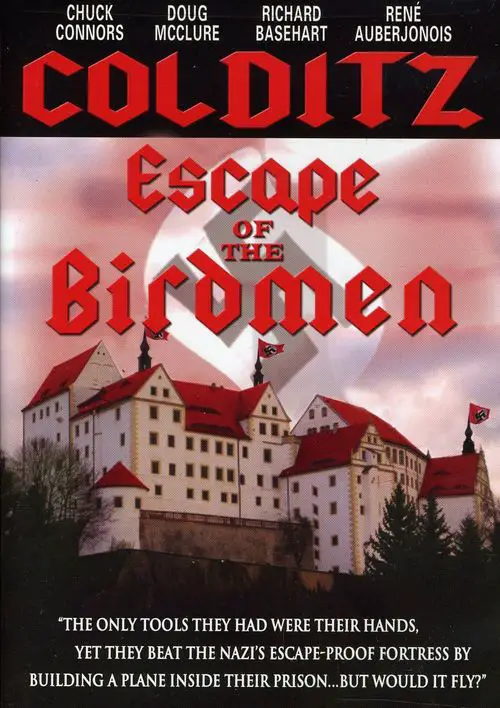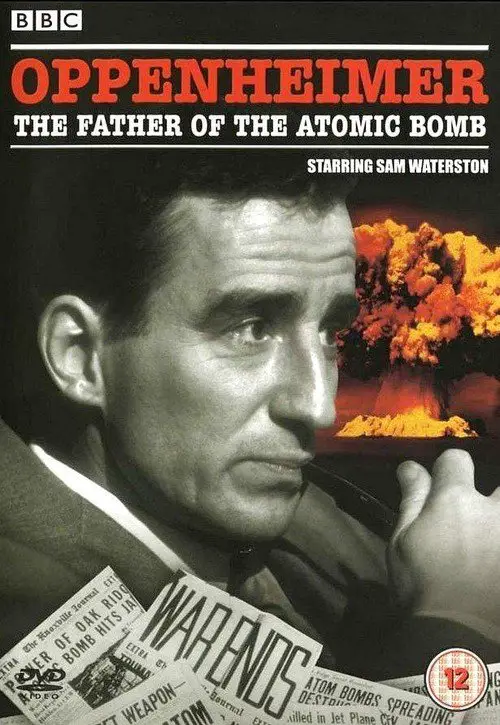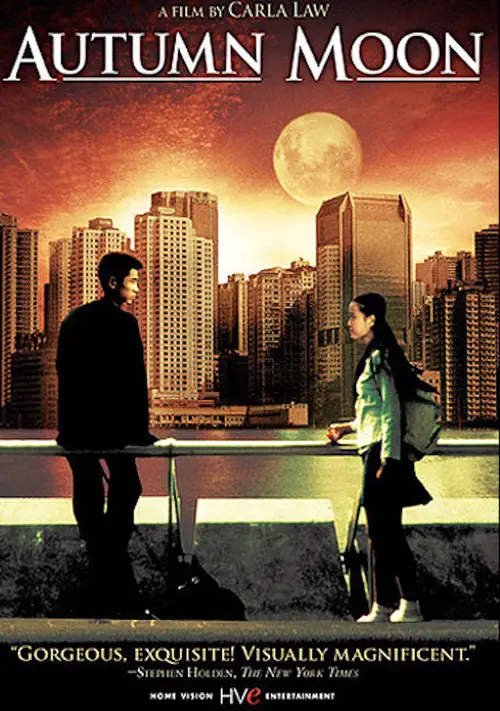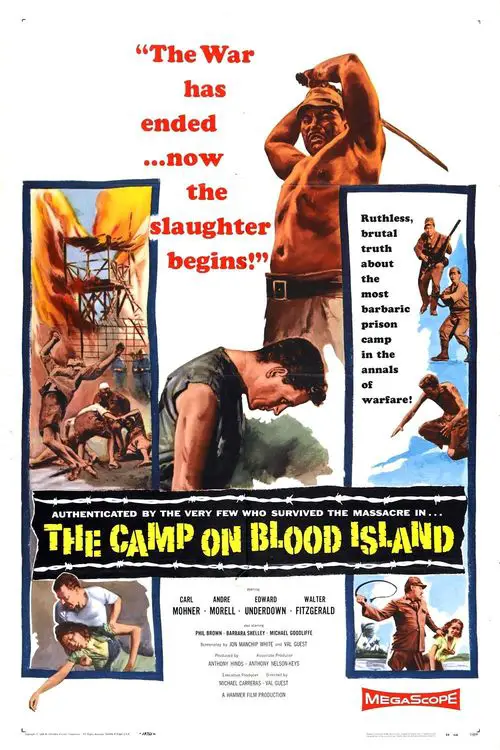Hiroshima Maiden (1988)
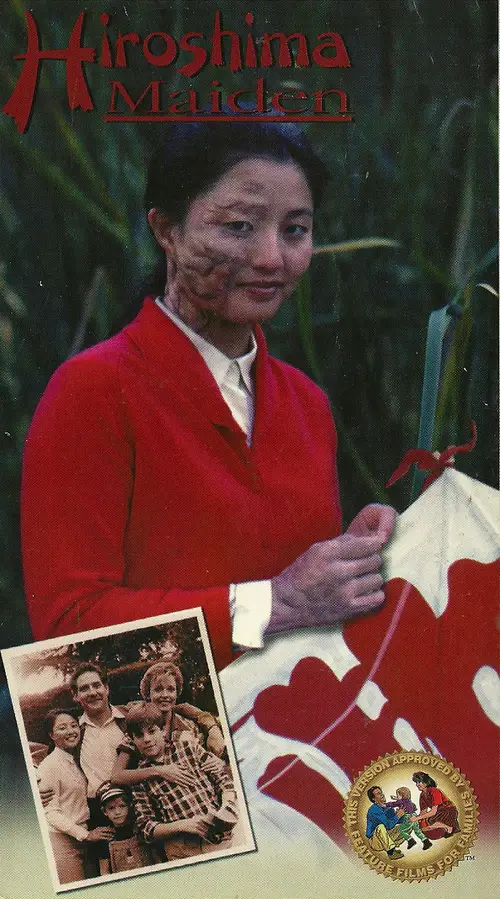
Similar movies
In the latter part of World War II, a boy and his sister, orphaned when their mother is killed in the firebombing of Tokyo, are left to survive on their own in what remains of civilian life in Japan. The plot follows this boy and his sister as they do their best to survive in the Japanese countryside, battling hunger, prejudice, and pride in their own quiet, personal battle.
There are breakpoints in the history, the result of a single event may change the whole course. In 1909, an assassination attempt of a Japanese governor fails. Now, in 2009, Korea is just another state of Japan's Empire & Seoul has become a major city. A Korean resistance group fights for liberty, independence & the restoration of true history. Two cops, Japanese & Korean, investigate the group.
During the Second Sino-Japanese War, in 1940, Lieutenant Kurokawa returns home as a honored and decorated soldier but deprived of his arms and legs lost in battle. All hopes, from the villagers and women to close family members, turn to Shigeko, the Lieutenant's wife. She must honor the Emperor and the country in setting an example for all by fulfilling her duty and taking care of the 'god soldier'. Kurokawa prior to leaving to fight in the war regularly beat and berated his wife for her barrenness and inability to bring him a son. When he returns home as an amputee with no hearing and no speech, his wife dutifully attends to him, even though he shows little appreciation for her dedicated care. His main concerns are getting fed and getting sex. Even in his own degraded condition, he manages to berate his wife. Eventually, though, his own memories infiltrate and he is haunted by his horrible, sadistic deeds, performed while in the duty of the Japanese military.
Snehmoy (Rahul Bose) and Miyage (Chigusa Takaku) are pen friends who exchange wedding vows through letters. Fifteen years pass but they never meet. Yet the bond of marriage is strong between them. This unusual relationship comes under a cloud when a young widow, Sandhya (Raima Sen), comes to stay with Snehmoy along with her eight-year-old son Poltu. Snehmoy and the little boy bond and the arithmetic teacher discovers the joy of palpable bonds and fatherhood. There develops an inexplicable thread of understanding with Sandhya too. But Snehmoy remained loyal to his unseen Japanese wife. When Miyage was ill from cancer, he took a long leave from his school and tried his best to find a cure for the illness. Meanwhile, malaria took a toll on him and he died. Coming of Miyage in a white sari to Sunderbans after his departure was really touching.
Against the background of an Australian desert landscape, so much space and so few people, Sandy, a geologist, and Hiromitsu, a Japanese businessman, play out a story of human inconsequence in the face of the blistering universe. The end of the journey leaves no-one capable of going back to where they started from.
The documentary recounts the world's first nuclear attack and examines the alarming repercussions. Covering a three-week period from the Trinity test to the atomic bombing of Hiroshima, the program chronicles America's political gamble and the planning for the momentous event. Archival film, dramatizations, and special effects feature what occurred aboard the Enola Gay (the aircraft that dropped the bomb) and inside the exploding bomb.
In 1942 British soldier Jack Celliers comes to a japanese prison camp. The camp is run by Yonoi, who has a firm belief in discipline, honour and glory. In his view, the allied prisoners are cowards when they chose to surrender instead of commiting suicide. One of the prisoners, interpreter John Lawrence, tries to explain the japanese way of thinking, but is considered a traitor.
An English scientist runs away from a research center with an atomic bomb. In a letter sent to the British Prime Minister he threatens to blow up the center of London if the Government don't announce the end of any research in this field within a week. Special agents from Scotland Yard try to stop him, with help from the scientist's assistant future son-in-law to find and stop the mad man.
When a western Pennsylvania auto plant is acquired by a Japanese company, brokering auto worker Hunt Stevenson faces the tricky challenge of mediating the assimilation of two clashing corporate cultures. At one end is the Japanese plant manager and the sycophant who is angling for his position. At the other, a number of disgruntled long-time union members struggle with the new exigencies of Japanese quality control.
This conventional post-nuclear holocaust drama from Yugoslav director Veljko Bulajic seems to be at cross purposes. On the one hand, its anti-war sentiments are clear, as well as its realistic scenarios of destruction, and on the other hand, the director and scripter Cesar Zavatini have turned the story into a satire. At the center of focus is a young couple who were getting married when the atomic bombs changed the face of the planet, and through the couple's own dilemma the greater picture is glimpsed. Assisting Eva Krizevska, Anton Vrdoljak, Zlatko Madunic, and other actors is President Marshal Tito's army.
Hungarian physicist Leo Szilard leaves Europe, eventually arriving in the United States. With the help of Einstein, he persuades the government to build an atomic bomb. The project is given to no-nonsense Gen. Leslie Groves who selects physicist J. Robert Oppenheimer to head the Los Alamos Laboratory in New Mexico, where the bomb is built. As World War II draws to a close, Szilard has second thoughts about atomic weapons, and policy makers debate how and when to use the bomb.
Based on the internationally acclaimed novel by Arthur Golden, Memoirs of a Geisha is a sweeping romantic epic set in a mysterious and exotic world that still casts a potent spell today. The story begins in the years before WWII when a penniless Japanese child is torn from her family to work as a maid in a geisha house.
American and Japanese soldiers, stranded on a tiny Pacific island during World War II, must make a temporary truce and cooperate to survive various tribulations. Told through the eyes of the American and Japanese unit commanders, who must deal with an atmosphere of growing distrust and tension between their men.
The Go Master is a 2006 biopic by director Tian Zhuangzhuang of renowned twentieth century Go master Wu Qingyuan, better known by his adopted name of Go Seigen. The film, which premiered at the 44th New York Film Festival, focuses on the life of this extraordinary player from his meteoric rise as a child prodigy to fame and fortune as a revolutionary strategic thinker, as well as the tumultuous global conflicts between his homeland and his adopted nation. The film also features a scene involving the Atomic bomb go game.
During the Japanese occupation of China, two prisoners are dumped in a peasant's home in a small town. The owner is bullied into keeping the prisoners until the next New Year, at which time they will be collected. The village leaders convene to interrogate the prisoners. The townspeople then struggle to accommodate the prisoners. One is a bellicose Japanese nationalist, the other a nervous translator. Will the townspeople manage to keep the prisoners until the New Year?
Eddie Kenner (Robert Stack) is given a special assignment by the Army to get the inside story on Sandy Dawson (Robert Ryan), a former GI who has formed a gang of fellow servicemen and Japanese locals. They use their muscle to take over Tokyo's pachinko racket and commit a series of train robberies, targeting deliveries of military ammunition.
A dramatic history of Pu Yi, the last of the Emperors of China, from his lofty birth and brief reign in the Forbidden City, the object of worship by half a billion people; through his abdication, his decline and dissolute lifestyle; his exploitation by the invading Japanese, and finally to his obscure existence as just another peasant worker in the People's Republic.
Japan sinks! Proving once again that Japan will never cease to find inventive ways to destroy itself on screen, this summer's blockbuster Sinking of Japan brings apocalypse through tectonics. Based on Sakyo Komatsu's best-selling novel, Sinking of Japan was first put on the big screen in Moritani Shiro's 1973 classic. In 2006, director Higuchi Shinji remakes the disaster movie, taking the story to
In the summer of 1941, the United States and Japan seem on the brink of war after constant embargos and failed diplomacy come to no end. "Tora! Tora! Tora!", named after the code words use by the lead Japanese pilot to indicate they had surprised the Americans, covers the days leading up to the attack on Pearl Harbor, which plunged America into the Second World War.
In July 1945, during the end of World War II, Japan is forced to accept the Potsdam Declaration. A cabinet meeting has continued through days and nights, but a decision cannot be made. The U.S. drops atomic bombs on the cities of Hiroshima and Nagasaki, Japan. General Korechika Anami is torn over making the proper decision and the Emperor of Japan worries about his people. Prime Minister Kantaro Suzuki leads the cabinet meeting, while Chief Secretary Hisatsune Sakomizu can't do anything, but watch the meeting. At this time, Major Kenji Hatanaka and other young commissioned officers, who are against Japan surrendering, move to occupy the palace and a radio broadcasting station. The radio station is set to broadcast Emperor Hirohito reading out the Imperial Rescript on the Termination of the War.
Black Sun: The Nanking Massacre, also called Men Behind the Sun 4, is a 1994 Hong Kong film directed by Mou Tun Fei and is in many ways considered to be a follow up to the 1987 shockumentary film, Men Behind the Sun. The movie depicts the events behind the Nanking Massacre committed by the Imperial Japanese army against Chinese citizens and refugees during the Second Sino-Japanese War. Like Men Behind the Sun, the film was both criticized and praised for its brutal portrayal of the Japanese atrocities, such as the notorious contest to kill 100 people using a sword, during the early and late stages of World War II, but at the same time was questioned over historical accuracy and violence which gave the film a more exploitation feel to it.
Following the detonation of the atomic bombs on Hiroshima and Nagasaki, the Japanese military and the government clash over the demand from the Allies for unconditional surrender. Minister of the Army Anami leads the military officers who propose to fight on, even to the death of every Japanese citizen. Emperor Hirohito, however, joins with his ministers in asking the unthinkable, the peaceful surrender of Japan. When the military plots a coup to overthrow the Emperor's civilian government, Anami must face the choice between his desires and loyalty to his Emperor.
Harry Truman, the successor to the Oval Office after the late President Rosevelt, is plagued with the decisions of war that could save or cost a thousand lives. He is then confronted with the nuclear weapons project, which he approves. As tension ensues (although it is difficult to get into this because most know the end) Truman must make the devastating decision to use the bomb of all bombs. After some delivering Japanese performances, Truman must force suffering on the Japanese people again in order to end the war.
An obsessive-compulsive Japanese librarian living in Bangkok spends most of his days contemplating suicide in his lifeless apartment. His life changes when he witnesses the death of Nid, seconds before he was about to jump off a bridge. This brings him in contact with Nid's elder sister Noi - these two lost and lonely souls help each other find the meaning to their meaningless existences.
The Wind Rises is the 11th animated theatrical film directed by Hayao Miyazaki at Studio Ghibli. Based on Miyazakiâs own manga and the 1937 short novel of the same name by Tatsuo Hori, this is the story of JirÅ Horikoshi, the aircraft engineer most remembered for his design work on the Mitsubishi A6M Reisen âZeroâ, Japanâs famous World War II fighter aircraft. During the WWII years, the Miyazaki family business manufactured aircraft parts, including the windshields and rudders used on the Zero.
Nathan Algren is an American hired to instruct the Japanese army in the ways of modern warfare -- in this lush epic set in the 1870s, which finds Algren learning to respect the samurai and the honorable principles that rule them. Pressed to destroy the samurai's way of life in the name of modernization and open trade, Algren decides to become an ultimate warrior himself and to fight for their right to exist.
In 1944, the American military lands on the shores of Saipan. Refusing to commit suicide with his superiors or be forced into camps for prisoners of war, Captain Oba Sakae leads a group of his men and other similarly minded local residents into the mountains. Even after hearing reports of the Japanese military's surrender, Oba dismisses the reports as propaganda and continues to launch guerilla attacks against the American soldiers, earning him the nickname "The Fox". Soon, even the American commander who's charged with the task of capturing Oba comes to admire his persistent enemy.
Inspired by a true story. Jun Shik works for Tatsuo's grandfather's farm while Korea is colonized by Japan, but he has a dream to participate in Tokyo Olympics as a marathon runner. Tatsuo also aims to become a marathon runner, so the two are in rivalry. But war breaks out and they both are forced to enlist in the army. Tatsuo becomes the head of defense in Jun Shik's unit and he devises a scheme but fails. Jun Shik and Tatsuo are captured by the Soviets. They run away but soon are captured by Germans and forced to separate. In 1944, they meet again at the shores of Normandy.
Based on a play by Hisashi Inoue, it focuses on the sufferings of the survivors of Hiroshima. The film takes place during 4 days in the summer of 1948, as the ghost of her father visits Mitsué (Rié Miyama). He had somehow learned that she has fallen in love, and tries to convince her to start her new life. But Mitsué obstinately refuses his warm and humorous encouragements : « People were killed in my place. I do not have the right to find happiness », she says.
Originally released in Japan simply as "Gojira" in 1984, this is the heavily re-edited, re-titled "Godzilla 1985". Adding in new footage of Raymond Burr, this 16th Godzilla film ignores all previous sequels and serves as a direct follow-up to the 1956 "Godzilla King of the Monsters", which also featured scenes with Burr edited into 1954's "Gojira". This film restores the darker tone of the original, as we witness the nuclear destruction of giant lizard terrorizing Japan.
Air Force Major Lloyd Gruver (Marlon Brando) is reassigned to a Japanese air base, and is confronted with US racial prejudice against the Japanese people. The issue is compounded because a number of the soldiers become romantically involved with Japanese women, in defiance of US military policy. Ordinarily an officer who is by-the-book, Gruver must take a position when a buddy of his, an enlisted man Joe Kelly (Red Buttons) falls in love with a Japanese woman Katsumi (Miyoshi Umeki) and marries her. Gruver risks his position by serving as best man at the wedding ceremony.
After the assassination of Tokyo's Governor by Yakuza members, the CIA bureau chief (William Atherton) for Tokyo puts out a call to an agent (Steven Seagal) that had been raised in Japan and trained by ex-Yakuza. Using his former ties, he quickly determines that a war is brewing between old-guard Yakuza members and a young, crazed leader (Takao Osawa) with ties to the Chinese Tong.
Fictional account of what might have happened if Hitler had won the war. It is now the 1960s and Germany's war crimes have so far been kept a secret. Hitler wants to talk peace with the US president. An American journalist and a German homicide cop stumble into a plot to destroy all evidence of the genocide.
Set in German-occupied Norway, this is an embellished account of the remarkable efforts of the Norwegian resistance to sabotage the German development of the atomic bomb. Resistance fighter Knut Straud enlists the reluctant physicist Rolf Pedersen in an effort to destroy the German heavy water production plant near the village of Rjukan in rural Telemark. In the process, Pedersen discovers that hi
Hyeong-gu (Ha Jung-Woo), a young Korean, visits Japan by boat three or four times a month to help with middle-aged Bo-gyungâs smuggling business. It is always Tooru (Satoshi Tsumabuki), a young Japanese man, who welcomes him there. Hyung-gu and Touru sacrifice themselves for the sake of their families, money, and friendship. One day, Bo-gyung orders them to kidnap a woman named Ji-su (Cha Su-Yeon) and take her to Japan, and this changes their future in an unexpected way.
City of Life and Death takes place in 1937, during the height of the Second Sino-Japanese War. The Imperial Japanese Army has just captured the then-capital of the Republic of China, Nanjing. What followed was known as the Nanking Massacre, or the Rape of Nanking, a period of several weeks wherein tens of thousands of Chinese soldiers and civilians were killed.
During WWII an American soldier sent to Norway to help with the escape of a scientist working on the atomic bomb for the Germans. Before they can escape they are captured and sent to a POW prison camp in an alpine castle. Cook must find a way to escape with the scientist before the Gestapo discover the Norwegian's true identity and convinces the other prisoners to build a two person glider in which they plan to escape.
Set in a Japanese prisoner of war camp during World War II, the film focuses on the brutality and horror that the allied prisoners were exposed to as the Japanese metered out subjugation and punishment to a disgraced and defeated enemy. This harrowing drama concentrates on the deviations of legal and moral definitions when two opposing cultures clash. Although fictional, this was one of the earliest films to deal realistically with life and death in a Japanese prisoner-of-war camp during the Second War.
© Valossa 2015–2026
| Privacy Policy
